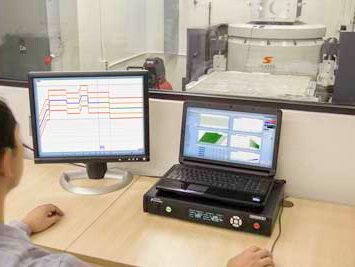Education and Research
Structural Dynamics Experiments
Teaching and studying the fundamental principles of structural dynamics by exciting and analyzing vibrations in model structures.
Vibration Control Systems
Studying the principles and implementation of vibration control algorithms and systems for damping vibrations in structures.
Modal Analysis
Performing modal testing and analysis to determine the natural frequencies, mode shapes, and damping ratios of structures in educational and research settings.
Mechanical Vibrations Courses
Supporting hands-on learning in mechanical engineering courses focused on vibrations, including theoretical concepts and practical applications.
Aerospace and Automotive Engineering Research
Investigating vibrations in aerospace and automotive structures, components, and systems to improve design, performance, and reliability.
Civil Engineering and Earthquake Engineering
Studying vibrations in civil engineering structures, bridges, and buildings to assess structural integrity and resilience to seismic events.
Biomechanics and Biomedical Engineering
Researching vibrations in biological systems, such as studying bone fractures or prosthetic limbs, to understand biomechanical behavior and improve medical devices.
Materials Testing
Evaluating the vibration characteristics of materials and composites to understand their mechanical properties and behavior under dynamic loads.
Environmental Vibrations
Monitoring and analyzing vibrations in environmental studies, such as assessing the impact of vibrations from transportation or industrial activities on ecosystems or buildings.
Advanced Research in Control Systems
Developing and testing advanced control algorithms for vibration suppression, active vibration isolation, or adaptive vibration control in various applications.
Products
Handheld Analyzers Dynamic Signal Analyzer (crystalinstruments.com)
Ruggedized Portable Analyzers Dynamic Signal Analyzer (crystalinstruments.com)
Dynamic Data Acquisition Dynamic Signal Analyzers (crystalinstruments.com)
Vibration Controllers Vibration Test Controller (crystalinstruments.com)
High Channel Count Systems Vibration Test Controller & Dynamic Signal Analyzer (crystalinstruments.com)
Strain Gage Measurement Strain Gage Measurement System (crystalinstruments.com)
Temperature Measurement Temperature Testing System (crystalinstruments.com)
Ground Recording System Ground Recorder System (crystalinstruments.com)
THV Testing Systems Combined Temperature, Humidity, and Vibration Testing (crystalinstruments.com)
Contract Testing Vibration Testing Lab Services (crystalinstruments.com)
Post Analysis Software EDM Post Analyzer Software (crystalinstruments.com)
Additional Resources
Acoustics Acoustic Testing & Acoustic Measurement (crystalinstruments.com)
Environmental and Structural Testing Structural Dynamics Testing (crystalinstruments.com)
Modal Analysis Modal Testing & Modal Analysis (crystalinstruments.com)
Multi-Axis Vibration Testing MIMO Vibration Test Controller (crystalinstruments.com)
Octave Analysis Acoustic Analysis (crystalinstruments.com)
Order Tracking Order Tracking Analysis (crystalinstruments.com)
Rotor Balancing Rotor Balancing (crystalinstruments.com)
Shock Response Spectrum Shock Response Spectrum (SRS) Analysis (crystalinstruments.com)
Sound Power Measurement Sound Power Measurements (crystalinstruments.com)
Time Waveform Replication Time Waveform Replication (crystalinstruments.com)
Vibration Intensity Whole Body Vibration Analysis (crystalinstruments.com)
GVT Testing Updated Ground Vibration Testing Video (crystalinstruments.com)
Gunshot Location Detection Gunshot Location Technology using Acoustic Data (crystalinstruments.com)
GPS Time Stamping Patented GPS Time Stamping Technology Available on the CoCo-80X (crystalinstruments.com)
Operational Modal Analysis Operational Modal Analysis featuring GPS Time Stamping Technology (crystalinstruments.com)










